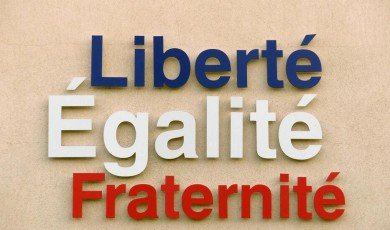
In today’s interconnected world, political communication rarely stops at national borders. This is especially true for France, a country with a rich history of diplomatic engagement and a profound influence on European and global policy. But as French governments communicate their foreign policy stances, how are their messages understood abroad—especially in neighboring Germany, with whom diplomatic coordination is paramount? The answer lies in the unseen yet vital work of translation_services.htm" target="_blank">German translation services. These services play a pivotal role in translating France’s policies, clarifying intentions, and ensuring diplomatic discourse remains accurate and effective. As we explore the intersection of translation and politics, we’ll uncover how expert translators help bridge linguistic divides and foster mutual understanding in the digital era.
The Strategic Role of German Translation in Franco-German Relations
France and Germany have long been considered the engines of the European Union. Their cooperation, built through the ashes of conflict and the foundations of peace, shapes the continent’s political, economic, and diplomatic trajectory. However, these nations also have different political cultures and languages, with French and German language media landscapes evolving along unique paths. Accurate communication is essential not only for formal diplomatic exchanges, but also for reaching civic audiences, journalists, and policy analysts on each side of the Rhine.
When a French official delivers a speech on a new foreign policy initiative—be it concerning EU defense, relations with Russia, or approaches to migration—the message is quickly translated by professional German language translation services. The quality and nuance of this translation can affect public perception, media coverage, and ultimately diplomatic outcomes.
From Élysée to Bundestag: Translating More Than Words
Political speeches are never just about words; they are about tone, historical references, cultural allusions, and intricate policy details. A single ambiguous word or cultural misstep in translation can inadvertently sow confusion or tension.
- Context and Nuance: French political communication often uses rhetorical flourishes, historical references, or subtle policy distinctions. Translating these into German requires knowledge of both the subject matter and the German audience’s expectations. For example, a direct translation of "solidarité européenne" might not resonate unless the translator understands ongoing German debates about EU burden-sharing.
- Accuracy and Timeliness: In the age of social media and 24/7 news, messages spread rapidly. Political translators must act swiftly to ensure that media outlets, policymakers, and citizens in Germany receive accurate information in real time. A misstep can distort headlines—and public reaction—within hours.
- Cultural Framing: The significance of votes, television debates, or youth engagement in France sometimes differs from German priorities. Translators must ‘localize’ content, adapting speeches to highlight issues that matter to German audiences without distorting the core message. This helps maintain the integrity of France’s foreign policy positions while making them intelligible to a German readership.
Case Study: France’s Response to Global Crises
Consider France’s evolving response to global events, such as the Russia-Ukraine conflict. French officials articulate their stance in nuanced tones, balancing calls for negotiation with commitments to security. When these statements cross into German public discourse, German language translation services ensure the intent—whether cautious optimism, solidarity, or firmness—is preserved. This not only aids decision-makers in Berlin or Brussels, but also shapes the narrative in German media, influencing public opinion and democratic debate.
The Digital Shift: Translation in the Era of Online Participation
Digital communication has transformed the pace and reach of political messaging. As French ministries stream press conferences, tweet policy updates, or publish white papers online, the need for precise and accessible translation has grown exponentially.
Modern German translation services aren’t limited to traditional speeches—they encompass live interpretation for debates, subtitling for viral political moments, and localization for governmental reports. This digital shift supports citizen engagement and transparency, aligning with the mission of our blog: to deepen understanding and participation in contemporary politics.
Supporting Informed Debate and Citizenship
For German-speaking audiences, access to high-quality translations of French political content is a democratic necessity. Whether they’re voting, engaging in discussion forums, or analyzing party platforms, citizens depend on clarity and reliability. Transparent communication also strengthens mutual trust between French and German societies—foundational for pan-European collaboration.
For youth activists, white-vote campaigners, or participants in televised debates—topics frequently explored in this blog—fully understanding each nation’s arguments is crucial for advocating effective reforms. And for politicians, analysts, and journalists, accurate translation is an essential resource for cross-border analysis and commentary.
Professional Translation: Ensuring Integrity in Political Discourse
It’s tempting to assume machine translation or casual bilingualism will suffice in sensitive political contexts. However, automated tools often miss cultural subtext, irony, or policy nuance. That’s why reputable platforms and political institutions rely on certified, human-led German language translation services. These experts are trained not just in language, but in political science, international law, and media studies—ensuring that the true meaning of France’s foreign policy shines through.
Leading agencies, such as those featured here, offer multi-disciplinary teams who handle everything from official communiqués to live debate interpretation. Their expertise safeguards the democratic process and upholds the standards of diplomatic engagement between France and Germany.
Conclusion: Bridging Ideas, Fostering Engagement
As French politics increasingly reverberate across Europe and the globe, the importance of skilled translation cannot be overstated. Behind every headline, speech, or foreign policy announcement, dedicated translators work quietly to clarify, contextualize, and transmit complex messages from Paris to Berlin and beyond. Their mission reinforces the pillars of democratic participation, informed debate, and respectful diplomacy.
For our Francophone readers committed to political analysis, civic innovation, and pan-European understanding, recognizing the value of German language translation services is more relevant than ever. Whether you’re tracking electoral reforms, scrutinizing televised debates, or promoting youth engagement in voter turnout, remember that accurate translation is the bridge that makes international dialogue possible.
As France and Germany continue to set the agenda for EU development and global stability, let us celebrate the unsung heroes—the professional translators—whose expertise quietly shapes the future of European politics.
Interested in learning more about the German language and its role in European politics? Explore further to see how language both separates and unites our continent.








